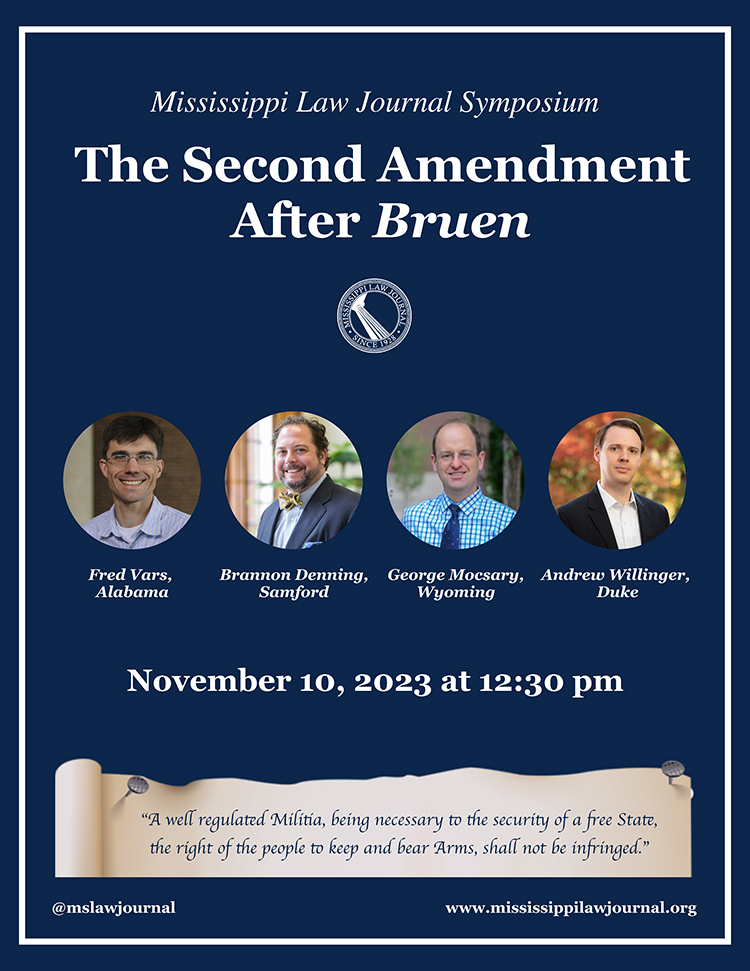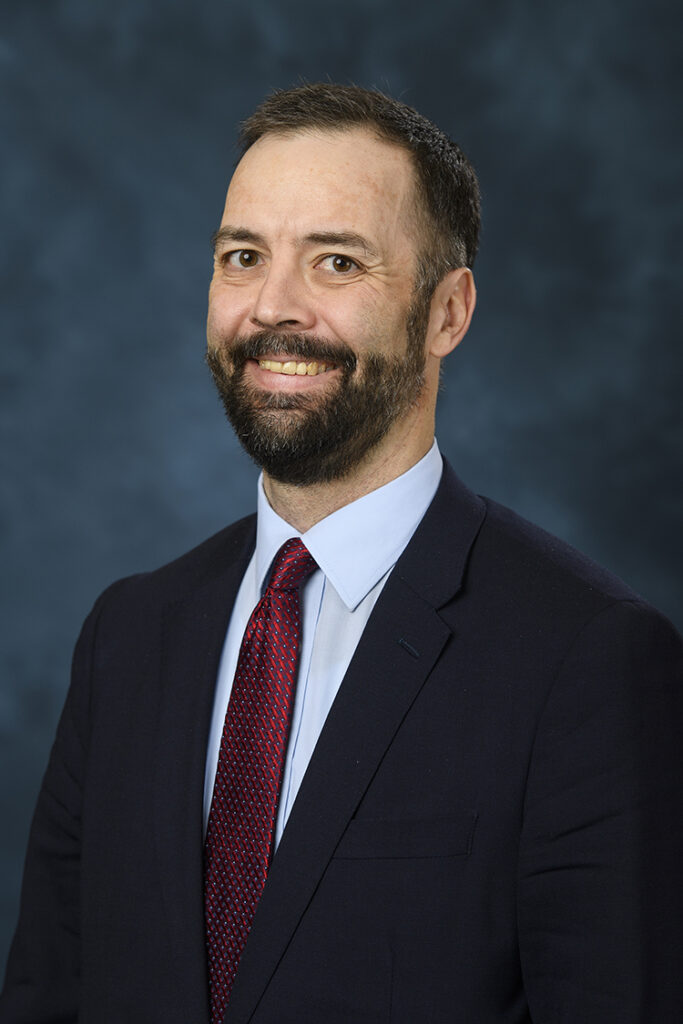
Law Journal symposium to discuss changes in Second Amendment interpretation
The Second Amendment has been a controversial issue in the United States for decades, but a 2022 Supreme Court decision may have changed the way justices assess whether a law concerning firearms is constitutional.
In a changing landscape, who has the right to bear arms? In a panel discussion next week, four experts in the subject will discuss major changes in gun law following New York Rifle and Pistol Association v. Bruen, a Supreme Court case decided in June 2022.
The Mississippi Law Journal symposium “The Second Amendment After Bruen” will be open to the public at 12:30 p.m. November 10, 2023, in Weems Auditorium at the University of Mississippi School of Law.
“Bruen broadened the scope of the Second Amendment,” said William Berry, associate dean for research and Montague Professor of Law. “No one knows, from court’s opinion, how far the right to bear arms goes.
“Because this is such a hot topic and because the case’s application is unclear, we will be hosting four experts from across the country to discuss the future of the Second Amendment.”
The four scholars will discuss the status of the Second Amendment and the recent changes to its implementation following Bruen and other notable cases, said Chris Green, UM law professor and Jamie L. Whitten Chair in Law and Government.
The speakers are:
- Fred Vars, Ira Drayton Pruitt Sr. professor of law at the University of Alabama
- Brannon Denning, Starnes Professor of Law at Samford University
- George Mocsary, professor of law at the University of Wyoming
- Andrew Willinger, executive director of the Center for Firearms Law at Duke University
In Bruen, the Supreme Court held that New York‘s law regulating who may apply to carry a firearm in public was unconstitutional and violated the Second and 14th amendments. The justices came to this decision based on the lack of a “tradition of law” that would support such regulation, Green said.
“The amount of litigation since Bruen has been just huge,” Green said. “It’s been something that there’s headlines getting created about it very regularly and the lower courts are now having to deal with different aspects of gun regulations and the traditions behind them.
“One of the things we want to do as the law school is tell people about what’s going on today, so choosing to focus our symposium on gun law was a very easy call.”
The Supreme Court will hear the oral argument in one such case, U.S. v. Rahimi, on November 7, just days before the symposium. U.S. v. Rahimi considers whether the Second Amendment affords the right to possess a gun to individuals subject to domestic-violence restraining orders.
The right to bear arms is one of the most divisive issues in America, with an almost even split between citizens who support and oppose the right of citizens to own firearms, according to the Pew Research Center. The court’s reading of the Second Amendment is important because it can place restrictions on how states and the federal government can regulate guns, Berry said.
“There’s a group in our population that opposes any limit on the right to have a gun, and there’s another group that wants to eliminate guns altogether, particularly in response to the rise in school shootings,” he said. “But most people fall somewhere in between.”
The speakers on the November 10 panel have opinions that range across the board regarding firearm legislation and will be able to speak from multiple perspectives, Green said.
“They’re all people who know a heck of a lot about the history of gun regulation and the details of how the Second Amendment has been working,” Green said. “I know a few of them well enough to know that it won’t be ideologically monochromatic.”
By Clara Turnage






